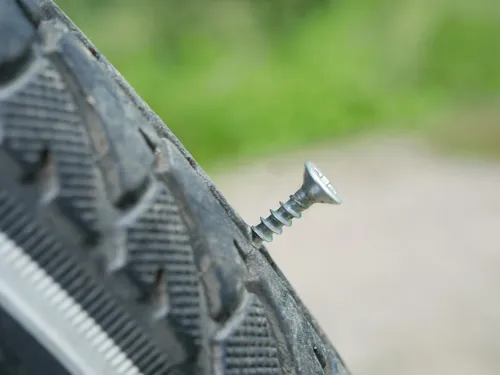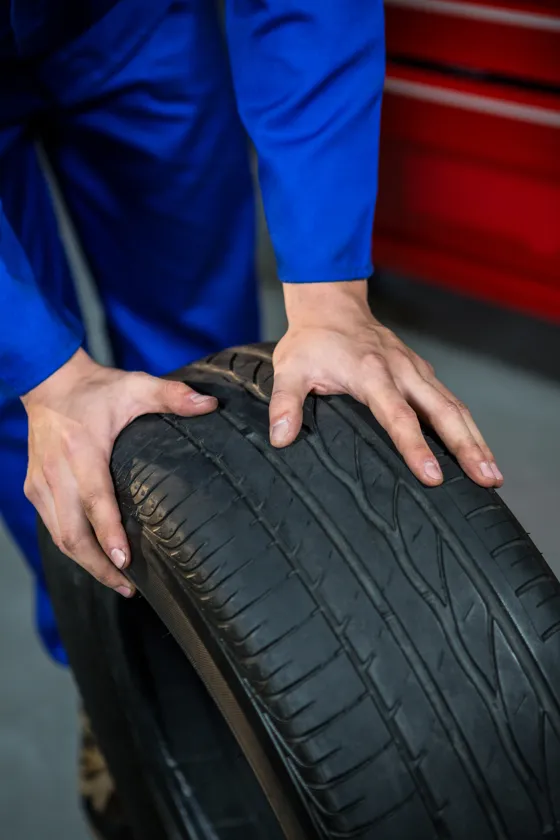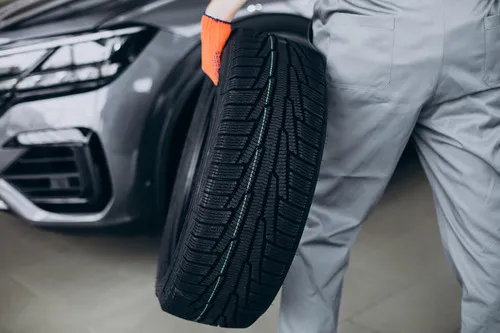Winter Tyres vs All-Season Tyres
Understand the difference between winter and all-season tyres for UK roads.
Posted on

When the temperature drops and UK roads get icy, tyre performance can drastically change. But should you switch to winter tyres or stick with all-season ones?
In this guide, we compare winter tyres vs all-season tyres — helping you understand which option suits your driving habits, climate, and safety needs.
1. What Are Winter Tyres?
Winter tyres are specifically designed for colder climates. They feature a softer rubber compound that remains flexible below 7°C, improving grip on cold, icy, or snowy roads.
- Deeper tread grooves for better water and slush dispersal
- More biting edges for traction on snow and ice
- Marked with a snowflake/mountain symbol on the sidewall
In short, they offer the best control and safety in harsh winter conditions — especially in rural or northern UK areas.
2. What Are All-Season Tyres?
All-season tyres combine characteristics of both summer and winter tyres. They perform well year-round in mild UK conditions, including light snow, rain, and dry roads.
- Balanced rubber compound for moderate temperature range
- Designed for wet and dry grip with some snow handling
- Marked with M+S (Mud + Snow), sometimes with the snowflake symbol
They’re ideal for drivers in southern and central England who don’t experience heavy snow but want reliable year-round performance.
3. Performance Comparison
Winter tyres provide superior braking and grip when the temperature drops, especially on snow-covered or icy roads. All-season tyres offer decent winter performance, but they’re not a replacement for full winter tyres in extreme conditions.
On dry and wet roads, both perform well, but all-seasons may wear faster if used heavily in summer heat or on motorways.
4. Cost & Convenience
- All-season tyres save you the hassle of seasonal swaps and storage
- Winter tyres require a second set and often a storage solution
- Both options are available in budget, mid-range, and premium brands
If you drive frequently in varied weather or live in areas with unpredictable conditions, investing in both summer and winter tyres may be best.
5. Which Tyres Are Right for You?
It depends on your location, driving frequency, and safety priorities:
- Use winter tyres if you live in Scotland, Wales, the Peak District, or anywhere with regular snow and ice.
- Choose all-season tyres if you're in cities like London, Oxford, Birmingham or Reading where winters are milder.
For commercial vehicles or vans, winter tyres offer better load traction in cold months, while all-season tyres offer convenience for fleet operations.
6. Book Your Tyres with Lucky Mobile Tyres
Not sure which tyre is right for your car? Our mobile tyre fitting service is available 7 days a week, across the UK.
- Winter and all-season tyres available in all sizes
- Same-day fitting at your home, work, or roadside
- Emergency callouts during winter breakdowns
- Expert advice on tyre performance and safety
Stay safe and prepared this season — call us today or book online for your mobile tyre replacement or fitting service.
Final Thoughts
Both winter and all-season tyres have their place on UK roads. If you’re regularly driving in cold, icy conditions, winter tyres are the clear winner. For mild winters and all-round flexibility, all-seasons are a reliable option.
Still unsure? Contact Lucky Mobile Tyres for personalised advice and tyre fitting wherever you are.









